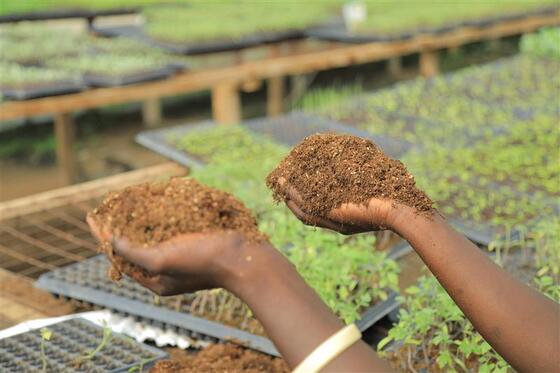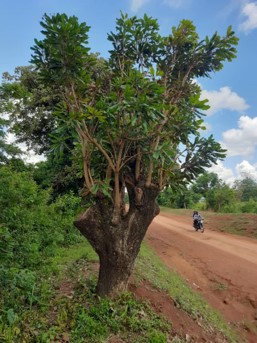The main objective of the market assessment was to evaluate existing soil testing models with potential applications in Northern Uganda, including models currently in use in Northern Uganda, Uganda, Kenya, and other regions. The assessment aimed to analyze the advantages and disadvantages of each soil testing model, as well as evaluate the opportunities, threats, strengths, and weaknesses of each model in relation to the Northern Uganda context and the needs of smallholder farmers.
A mixed-methods approach involving quantitative and qualitative (interactive, participatory, and consultative techniques) were used in conducting the market assessment. Participatory techniques such as Key informant interviews, focus group discussions, document review, and photography were used during data collection in addition to the household farmer questionnaires. A total of 302 individual farmers and 29 key informants were interviewed across different districts, and 18 focus group discussions were conducted. The assessment revealed that the following factors were crucial in influencing smallholder farmers' decisions to invest in soil testing services.
- Accessibility and convenience: Across various regions, respondents prioritize accessibility and convenience differently e.g., Acholi: 85.2%, Lango: 77.1%, Kiryandongo: 69.2%, Refugee Settlements: 66.7% and West Nile: 66.7%. These percentages highlight the importance of making soil testing services readily available and easy to use for farmers.
- Technical expertise and support: Technical expertise and support are critical factors driving smallholder farmers' investment in soil testing services. Across all sub-regions, 51.8% of farmers identified these factors as vital. The importance of technical expertise and support varied by region for example, Lango: 80.0%, Acholi: 59.3%, Refugee Settlements: 55.6%,
- Speed and turnaround time: Speed and turnaround time was reported as an important factor for 35.1% of farmers across all regions when deciding to invest in soil testing services. Here are the regional-specific statistics; Lango: 71.4%, West Nile: 33.3%, Acholi: 22.2%, Elgon: 22.2%, Kiryandongo: 15.4%, Refugee Settlements: 0.0%. These figures highlight the varying importance of quick results in different regions, thus influencing farmers' willingness to invest in soil testing services.
- Accuracy and reliability: The assessment revealed that accuracy and reliability are key drivers for in vesting in soil testing services for smallholder farmers, with the following regional statistics; Acholi: 29.6%, Elgon: 7.4%, Kiryandongo: 0.0%, Lango: 54.3%, Refugee Settlements: 0.0% and West Nile: 33.3%. These figures demonstrate the varying importance placed on accuracy and reliability by farmers in different regions.
Similarly, upon conducting a constraints analysis, the main causes of the soil testing market system failures included among others the rigidity of farmers on traditional farming practices, limited awareness, the relatively high cost of carrying out soil testing, low penetration by private soil testing actors in rural/ remote areas limits the accessibility of soil testing, technological constraints and limited extension services. Overall, all these root causes and constraints all combined result in the low uptake of soil testing services.



